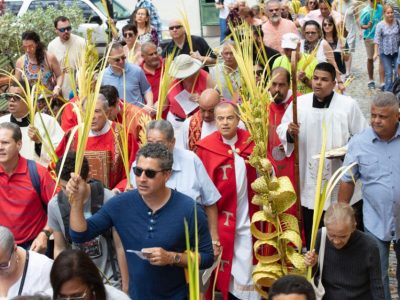
The words continued to reverberate in the mind of the archbishop as he left the first session of the Second Vatican Council: “Every opportunity should be given the laity to share zealously in the salvific work of the Church…”
For the late Joseph Cardinal Ritter, these words inspired him to explore ways by which dioceses might come together to discuss, exchange ideas and share information on how to involve the laity in the life of the Church in a profoundly new way.
These early gatherings marked the beginnings of the International Catholic Stewardship Council (ICSC), which this year celebrates its 60th anniversary.
Cardinal Ritter was the archbishop of St. Louis, Missouri, at the time, and the words that continued to inspire him came directly from chapter IV of the Dogmatic Constitution on the Church pertaining to the laity (n33).
He understood that this 22nd great council of the Church acknowledged “the laity’s special and indispensable role in the Church’s mission” (Decree on the Apostolate of the Laity, n1) and was making an earnest appeal of the laity to respond enthusiastically “to the voice of Christ” (Decree, n 33).
The United States bishops identified this response as “stewardship” in their 1992 pastoral letter, “Stewardship, A Disciple’s Response.” The mission of ICSC is to promote and support the bishops’ teaching on stewardship, which is not simply an appeal for funds but an expression of how we live our lives in response to the call of Jesus Christ.
The term stewardship is used quite frequently in the public square and the marketplace. Leaders of government, corporations, universities and other secular organizations speak of their stewardship responsibilities. Indeed, leaders of these institutions may have a broader understanding of the term than many Catholic leaders, for whom stewardship is understood as only being about money.
Secular institutions understand that the term “stewardship” has far greater implications than the management of money — which is only one important aspect of stewardship. Moreover, an increasing number of people, especially young people, are using the language of stewardship to express their concerns about the earth, its inhabitants, and its resources.
For many Catholic communities, stewardship is understood as most, if not solely, about parishioners’ money — their “treasure.” Other parishes have expanded that understanding to include “time” and “talent” as their definition of “holistic” stewardship.
But the gospel imperative of stewardship transcends these simple characterizations. Stewardship concerns itself with how Christian disciples embrace God’s created order with the “mind of Christ” (1 Cor. 2:16) and interact with creation and its inhabitants as “ambassadors of Christ” (2 Cor. 5:20). The United States bishops bring this Gospel imperative to life in their pastoral letter.
The bishops’ stewardship pastoral teaches that the best way to respond to God’s loving generosity is by extending that generosity day by day.
Take time for prayer; nurture relationships with family and friends; participate in the life of the parish community; act out of loving compassion toward others in the world.
What God does in Jesus’s human life is a much-magnified version of what happens when one’s personal schedule is rearranged to be with someone who is lonely or despairing, when creative ways are devised to volunteer talents for the parish, or when family budgets and spending habits are reprioritized in light of the Gospel. The stewardship question is not, “Should I do these things?” but rather, “How much should I do?”
Ultimately, stewardship comes down to personal decisions about how each of us lives out our commitment to discipleship and how each of us will use God’s gifts based on our experience, self-knowledge and the call of God’s grace.
There is the paradoxical truth, hallowed in the New Testament, that by giving ourselves to someone or something beyond ourselves, we discover our own best self: “He who loses himself for my sake will find himself” (Mt 10:39). Living as Christian stewards should bring a deeper and greater joy, and confidence about being disciples Christ Jesus.
ICSC welcomes parish leaders, those involved in a variety of parish ministries, and Catholic school administrators to attend its 60th-anniversary conference to be held in Anaheim, California, from Oct. 2 to 5.
The theme, Stewardship: A Disciple’s Response, is taken from the bishops’ pastoral letter and offers participants a chance to gather and reflect on the spirituality of stewardship in the Catholic Church and its implications for our Catholic life of faith.



